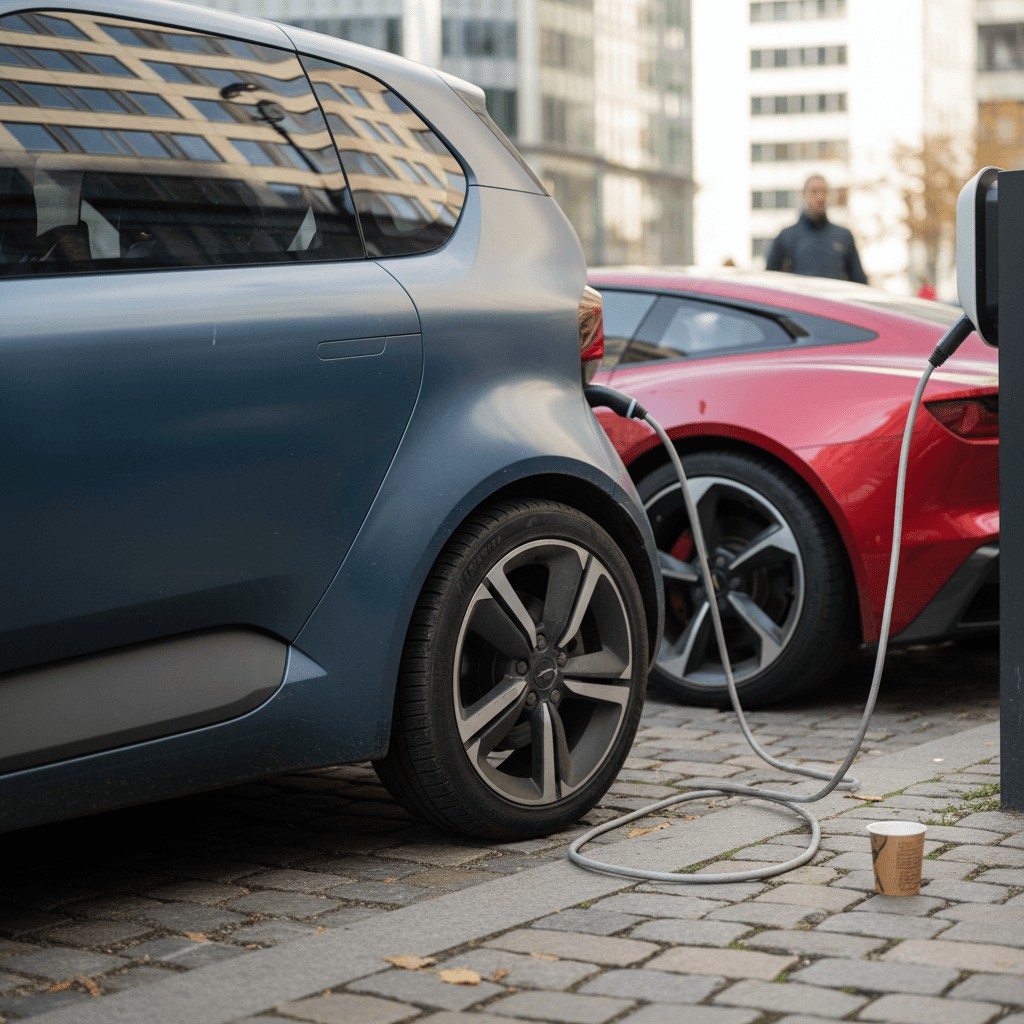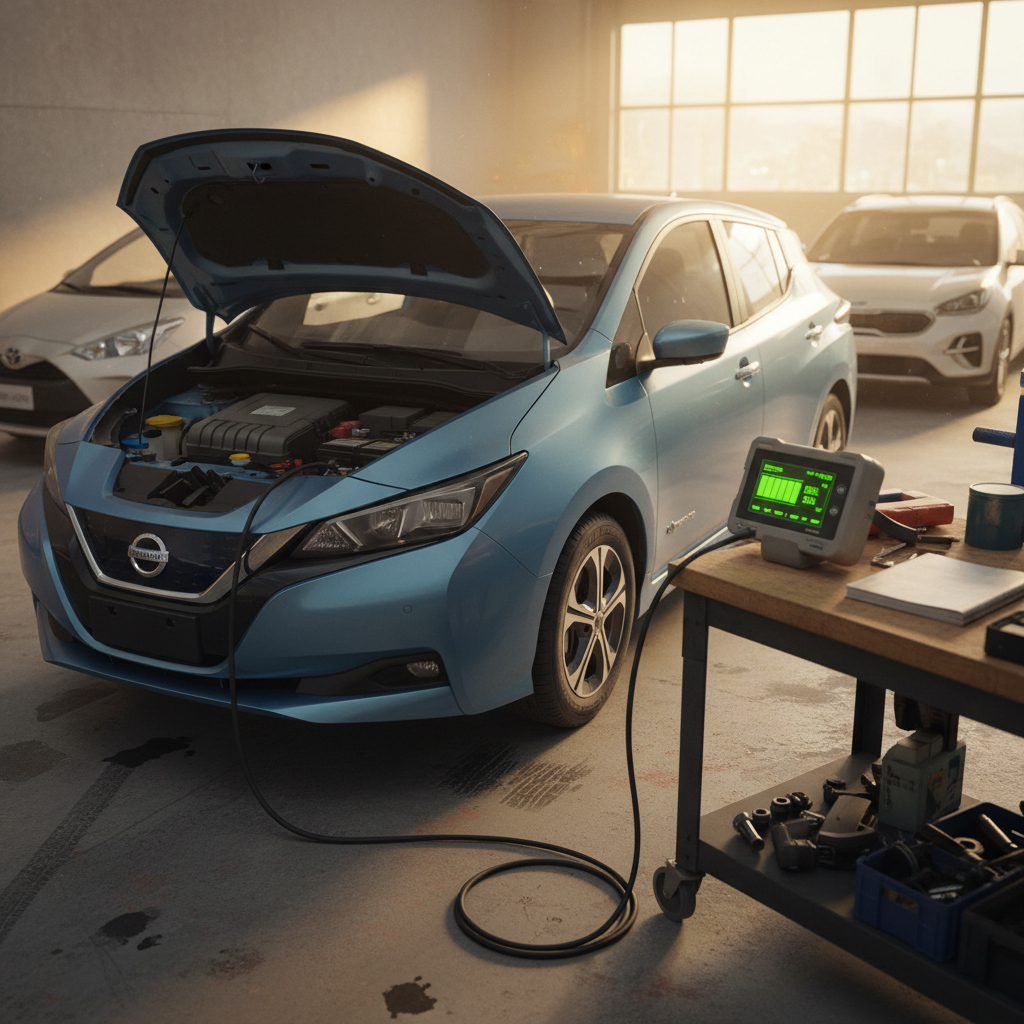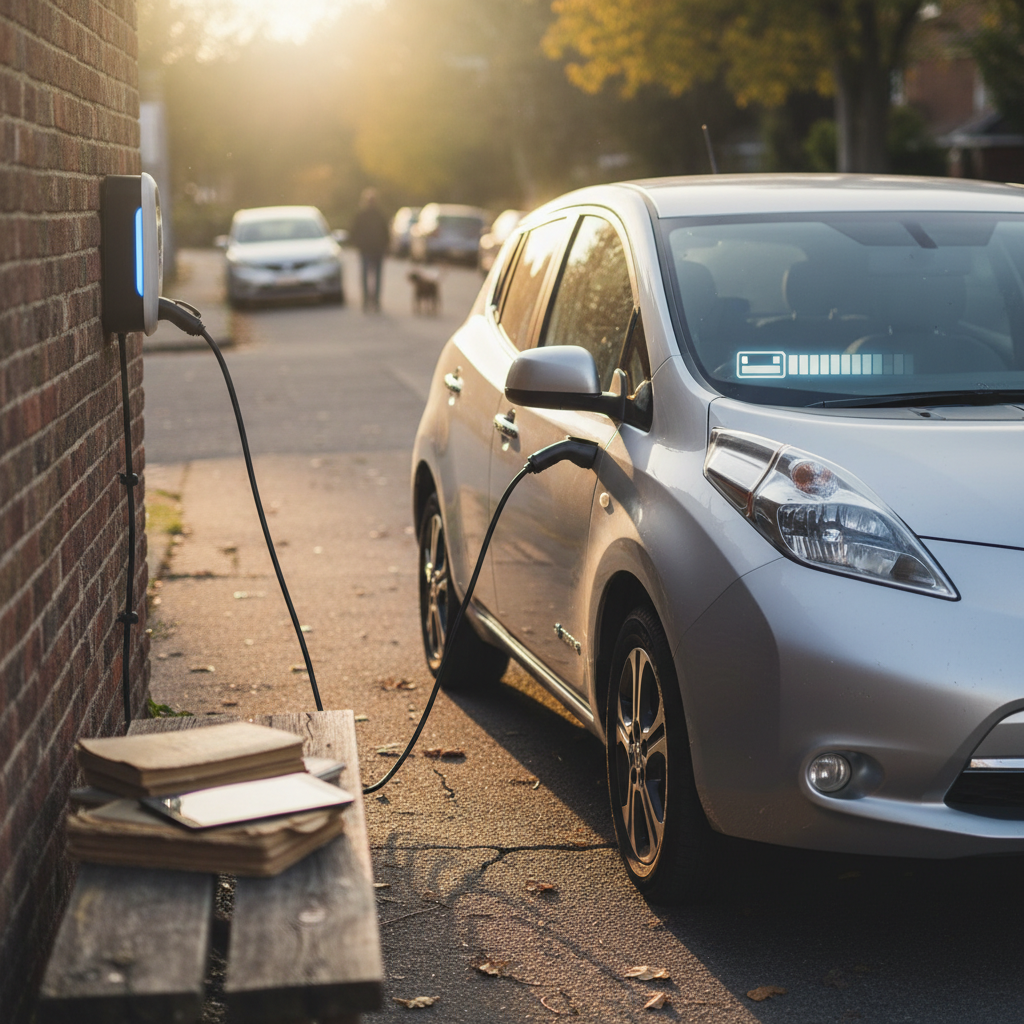If you’re looking at a Chevy Blazer EV, you’ve probably wondered about battery replacement cost, especially with a brand‑new model that doesn’t have 10 years of real‑world data behind it yet. The truth is that there’s no official menu price for a Chevy Blazer EV battery replacement today, but we can build a realistic range from GM’s Ultium technology, pack size, and what similar GM EVs cost to repair.
Context: why there’s no single “Blazer battery price” yet
Chevy Blazer EV battery replacement cost overview
Let’s start with the question you came here for. Based on Ultium battery pricing trends, comparable GM EVs, and current EV repair data, a Chevy Blazer EV battery replacement performed out of warranty at a Chevrolet dealer is likely to land in this ballpark:
Estimated Chevy Blazer EV battery replacement cost (out of warranty)
Projected costs for a full pack replacement once Blazer EVs begin to age out of warranty. These are directional estimates, not official GM pricing.
| Item | Low estimate | Typical range | High estimate |
|---|---|---|---|
| Battery pack parts (Ultium pack, 85–102 kWh) | $16,000 | $18,000–$22,000 | $24,000+ |
| Labor & shop supplies | $1,200 | $1,500–$2,000 | $3,000 |
| Programming, coolant, incidentals | $300 | $400–$800 | $1,200+ |
| Total out-of-warranty replacement | $17,500 | $19,900–$24,800 | $28,000+ |
Real‑world invoices for Blazer EV packs are still rare as of late 2025, so treat these as planning numbers rather than quotes.
Sticker shock is normal, here’s the good news
- Expect high five‑figure parts cost if a full pack were ever needed outside warranty.
- Actual owner costs will often be $0 under GM’s battery warranty, especially in the first 8 years/100,000 miles.
- Shoppers should focus more on battery health and warranty status than trying to budget for a worst‑case, out‑of‑warranty replacement.
How big is the Blazer EV battery and what does that mean for cost?
The Blazer EV rides on GM’s Ultium platform, using a large structural battery pack integrated into the floor. Depending on trim, early Blazer EVs have pack capacities roughly in the 85–102 kWh range, significantly larger than a Chevy Bolt EV’s 66‑kWh pack and closer to what you’d see in a midsize electric SUV or pickup.
Chevy Blazer EV battery at a glance (approximate
Battery replacement cost scales with pack size. A 100‑kWh pack simply uses more cells and expensive materials than a 60‑ or 70‑kWh pack, so it’s reasonable to expect Blazer EV pack pricing to sit above smaller GM EVs, unless GM’s Ultium cost reductions fully offset that.
Rules of thumb for EV battery cost
What we know from GM and other Ultium models
Because there’s no long track record of Blazer EV pack replacements yet, the best way to frame Chevy Blazer EV battery replacement cost is to look at two things: GM’s history with the Bolt EV/EUV, and Ultium‑based vehicles like the Cadillac Lyriq and GMC Hummer EV.
What other GM EVs tell us about Blazer EV battery costs
Past models give useful reference points, even if the tech has evolved.
Chevy Bolt EV / EUV
Independent repair data and owner invoices suggest full Bolt packs (66 kWh) can run around $16,000–$17,000 for the battery alone, before labor and incidentals.
Ultium SUVs & trucks
Ultium‑based vehicles use larger, more complex packs than the Bolt. Parts prices aren’t widely public yet, but given pack size, it’s reasonable to project higher total pack cost even as Ultium cuts cost per kWh.
GM’s cost‑reduction push
GM has been explicit about driving Ultium pack costs below prior generations. Over time, that should help hold down Blazer EV battery pricing, especially if newer LFP or manganese‑rich chemistries arrive.
Why you won’t see official prices posted online
Chevy Blazer EV battery warranty coverage
The single biggest factor in what you’ll actually pay isn’t the theoretical price of a battery pack, it’s GM’s warranty. For the Blazer EV, GM follows the same pattern it uses on other modern EVs:
Key pieces of Blazer EV battery warranty coverage
1. 8‑year/100,000‑mile high‑voltage battery warranty
GM backs the Blazer EV’s high‑voltage battery pack for 8 years or 100,000 miles from the in‑service date (whichever comes first). Within this window, pack defects and many failures are typically covered with no charge to the owner.
2. Capacity loss protection
GM warranties generally cover the battery if usable capacity falls below a specified threshold (often around 60–70% of original). Exact language varies, so reading the Blazer’s warranty booklet is important.
3. Transferable to subsequent owners
The battery warranty follows the vehicle, not just the first owner. If you buy a used Blazer EV that’s 3 years old with 40,000 miles, you still have meaningful coverage left.
4. Covered parts & labor at Chevy dealers
Battery repairs or replacements under warranty are performed at authorized dealers using GM parts, and both parts and labor are typically covered when it’s a warrantable failure.
Reality check: most failures happen under warranty
Signs you might need Blazer EV battery work
Complete battery failures are rare, but it’s useful to know what early warnings might look like in a Blazer EV so you can get the vehicle checked while you’re still covered.
- Noticeable, rapid loss of driving range over a few months (not just seasonal winter drop).
- The vehicle shows warnings like “Service high voltage battery” or repeatedly limits power even at moderate state of charge.
- One section of the battery runs unusually hot or cold compared with the rest (visible in more detailed diagnostic tools, not just the dash).
- The car spends long periods at a dealership while technicians chase pack‑related trouble codes or repeatedly perform software updates with limited improvement.
Don’t ignore high‑voltage warnings

New vs. used Blazer EV: How worried should you be about the battery?
Buying a new Blazer EV
If you’re buying new from a Chevy dealer, your main focus should be on keeping the battery healthy long‑term, charging habits, heat exposure, and avoiding storing the vehicle at 100% state of charge for long periods.
- You’ve got the full 8‑year/100,000‑mile battery warranty ahead of you.
- Software updates and any early‑life issues will be handled under warranty.
- Catastrophic failures in years 1–5 are overwhelmingly a manufacturer’s problem, not yours.
Buying a used Blazer EV
With a used Blazer EV, the questions shift to how the previous owner treated the battery and how much warranty is left.
- Verify the in‑service date so you know the true warranty end date.
- Check for outstanding recalls or service campaigns.
- Ask for a recent battery health report, Recharged provides this via our Recharged Score on every vehicle listed.
Used Blazer EV? Make battery health part of your inspection
Ways to avoid ever paying full battery replacement cost
You can’t control every variable, but you can stack the odds in your favor so a five‑figure Chevy Blazer EV battery replacement cost stays theoretical rather than real.
Practical strategies to minimize Blazer EV battery risk
Most of these cost little or nothing, just better habits and planning.
Lean on the factory warranty
Log issues early and keep service records. If something seems off with range, charging speed, or warnings, have a Chevy dealer look at it while you’re still comfortably inside the 8‑year/100,000‑mile window.
Use balanced charging habits
Frequent DC fast charging is fine on road trips, but for daily use, rely more on Level 2 charging and avoid sitting at 100% for days. Aim to live between roughly 20% and 80% for routine driving.
Protect the pack from heat
Heat is the long‑term enemy of batteries. Whenever you can, park in shade or a garage, and avoid leaving the vehicle fully charged in hot conditions for extended periods.
Should you consider additional EV protection?
Understand what the factory warranty does and doesn’t cover
Read the high‑voltage battery section of your Blazer EV’s warranty booklet. Understand the time/mileage limits and how capacity loss is defined.
Compare EV‑specific protection plans
Some buyers opt for EV‑focused service contracts that can extend coverage beyond GM’s factory warranty or cover non‑battery components that can still be expensive on EVs.
Run the math for your ownership horizon
If you only plan to keep the Blazer EV for 4–5 years, you may be trading out long before the battery warranty becomes a concern. If you’re planning to keep it 10+ years, added protection may pencil out.
Where Recharged fits in
How Recharged evaluates Blazer EV battery health
For shoppers considering a used Blazer EV in the coming years, the big question won’t be “What’s the battery replacement cost?” so much as “How healthy is this particular battery?” That’s where objective diagnostics matter.
- Recharged performs battery health diagnostics that look at usable capacity, pack balance, and error history where available.
- Results are rolled into a Recharged Score so you can compare one EV to another at a glance, not guess from vague range estimates.
- If something looks off, such as unusual degradation for the age and miles, our team flags it and helps you understand whether it’s a deal‑breaker, a negotiation point, or a warranty conversation with a Chevy dealer.

FAQ: Chevy Blazer EV battery replacement cost & ownership
Frequently asked questions
Bottom line: Plan for the worst, expect better
On paper, a Chevy Blazer EV battery replacement looks expensive, potentially a five‑figure repair if it ever happens outside GM’s warranty. In practice, most owners will never see that bill. Between the 8‑year/100,000‑mile battery warranty, improving Ultium technology, and smart charging habits, your real‑world risk is far lower than the sticker shock might suggest.
If you’re shopping new, focus on how the Blazer EV fits your life: range, charging access, and total cost of ownership. If you’re shopping used, make battery health and warranty status part of your short list. And if you’d rather have a guide in your corner, Recharged pairs every used EV with a Recharged Score battery health report, fair market pricing, and EV‑savvy support, from your first question to delivery in your driveway.



